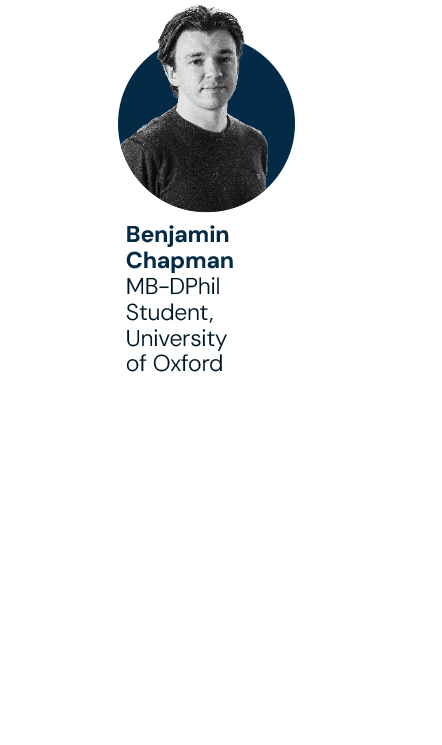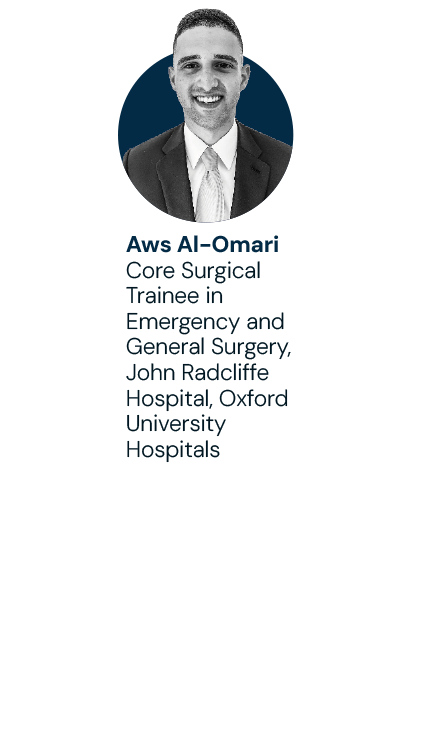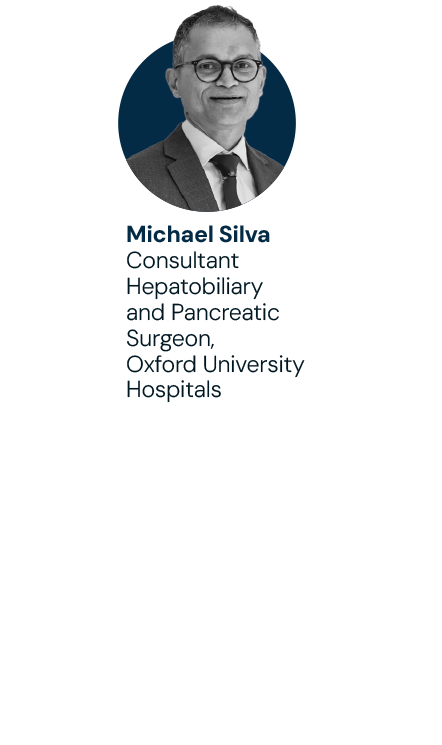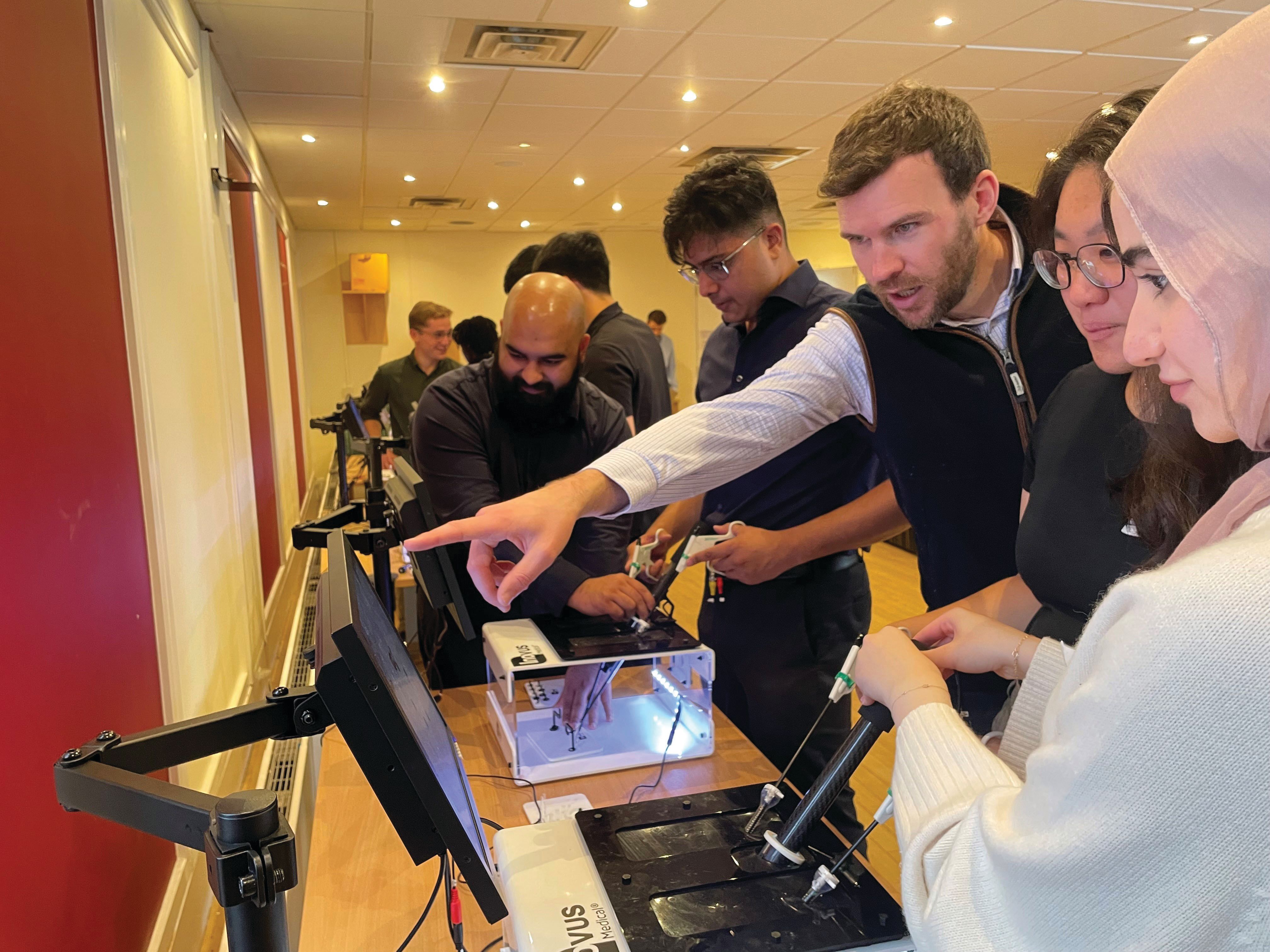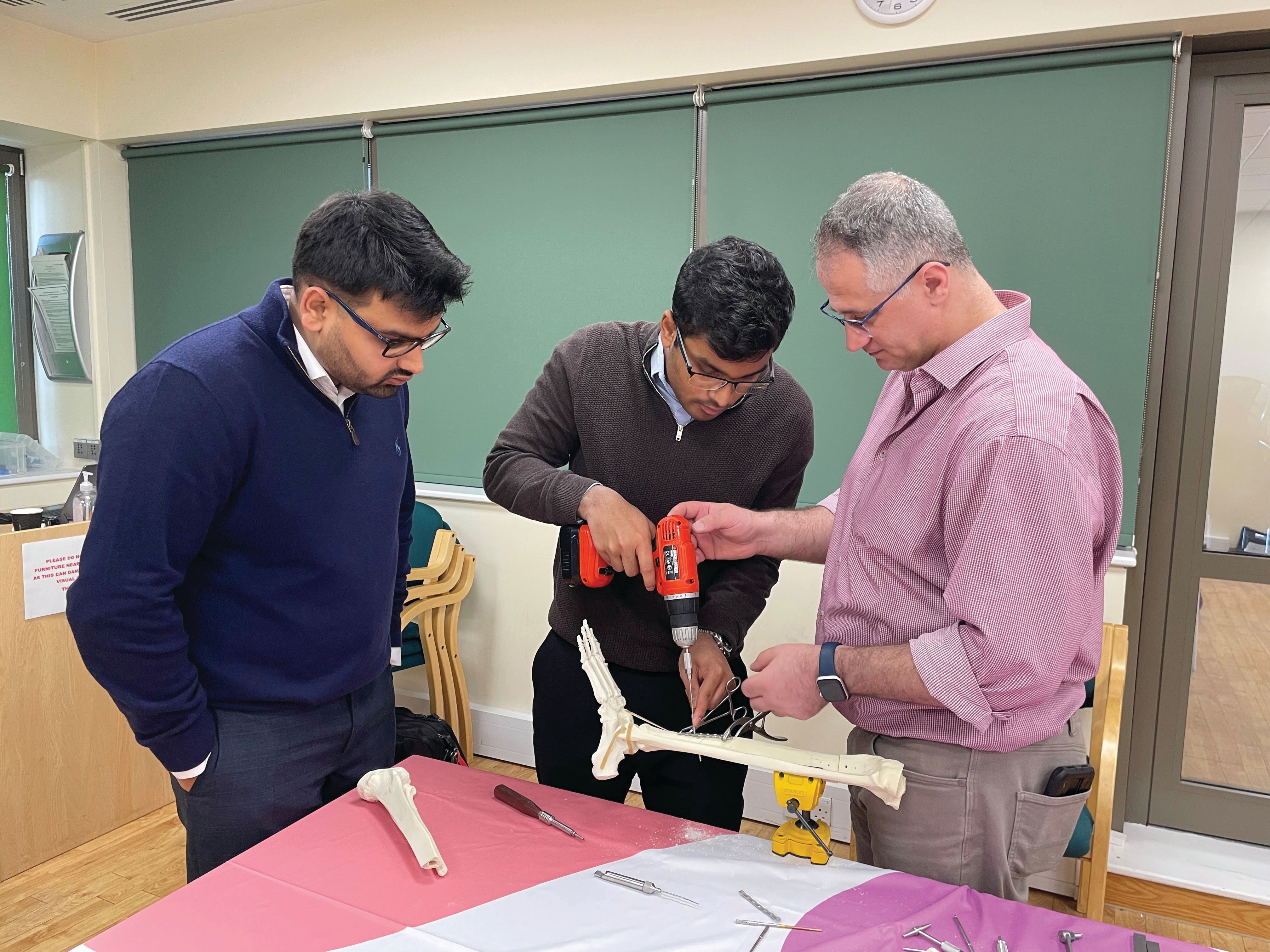Inspiring and encouraging the
next generation of surgeons
Oxford Surgical Skills Symposium engages senior medical students and foundation trainees with a surgical career, write Benjamin Chapman, Aws Al-Omari and Michael Silva
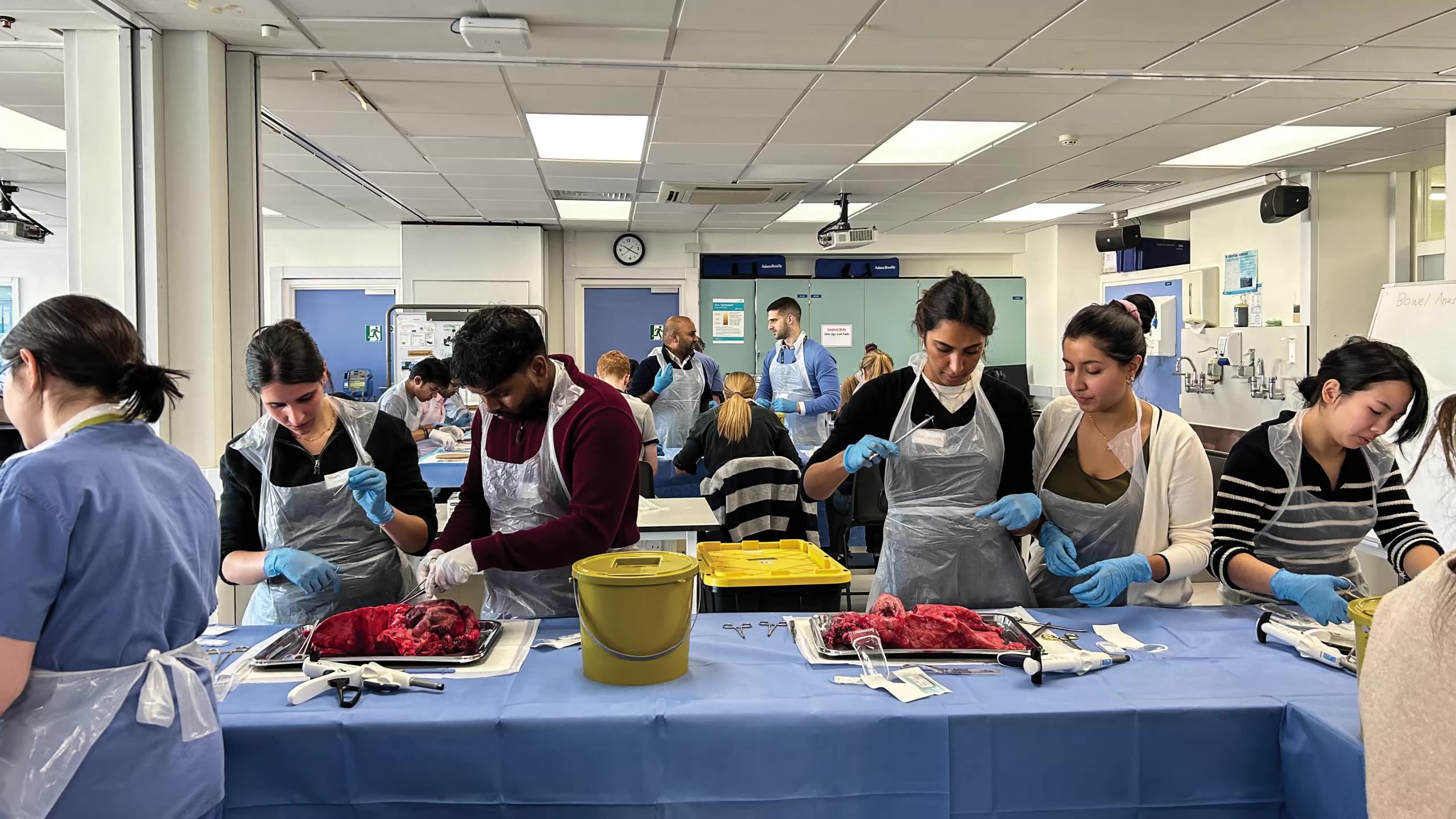
Early October brought the return of the much-anticipated annual Oxford Surgical Skills Symposium. Taking place on Saturday 5 October at the John Radcliffe Hospital, this highly successful event is now into its 11th year and has grown to become arguably the country’s leading surgical skills course for students and resident doctors.
Consultant Hepatobiliary Surgeon Michael Silva, Director of the Foundation Trainees Surgical Societies (FTSS-UK), and Trainee Surgeon Katie Hurst have been behind the concept and execution of this symposium from the outset. The Oxford Surgical Skills Symposium is a collaboration between the Royal College of Surgeons of Edinburgh, the Hugh Cairns Surgical Society (HCSS) and the Oxford Foundation Trainees Surgical Society (OxFTSS). The HCSS is the University of Oxford’s surgical society and is committed to supporting surgically inclined students beyond the medical school-curriculum. Along with our mentorship programme, supporting events like the Skills Symposium is one of the best ways to engage senior medical students with a surgical career.
Not only does 2024 mark another successful year of the Skills Symposium, but it also constitutes an important milestone as the 10th anniversary of OxFTSS and the wider FTSS-UK network. OxFTSS was founded in 2014 by Ms Hurst, then a budding FY1 and now an ST6 in general surgery, with the support of Mr Silva, then Regional Surgical Ambassador (RSA). Later as Director of the College’s RSA network, Mr Silva was instrumental in setting up 16 FTSSs in the UK and, backed by RCSEd, the FTSS-UK network, the umbrella organisation bringing these societies together. The network aims to bridge the gap in surgical support between medical school and surgical training nationally by organising events throughout the year beyond the Skills Symposium, such as Core Surgical Training Interview Preparation Courses, MRCS Part A Revision Courses, Annual FTSS National Conferences and more. By inspiring, supporting and guiding foundation doctors towards a career in surgery, this symposium provides a perfect opportunity to highlight their contribution across the past decade.
Getting to grips with laparoscopic simulators before taking part in the laparoscope competition
Getting to grips with laparoscopic simulators before taking part in the laparoscope competition
The skills day itself commenced with highly engaging lectures delivered by senior surgeons from a diverse range of surgical specialties, providing a glimpse of what surgery can offer as a career. These presentations acted as primers for the practical sessions ahead, enabling attendees to appreciate the relevance of the skills they were to learn.
For the practical sessions, participants were split into small groups to allow one-to-one engagement with the senior trainees and consultants manning the stations. The day was filled with stations from basic skills in the wet lab, such as diathermy and suturing, through to hand-sewn bowel anastomosis (and subsequent leak testing), tendon repair and cardiothoracic trauma management. Outside of the wet lab, a variety of training simulators were available. For example, the urology workshop gave trainees an opportunity to simulate ureteric calculus retrieval and to try their hand at a robotic surgery training console. Delegates were particularly keen to get their hands on saws, drills and plates in the trauma and orthopaedics station.
This event is unique among skills symposia in its dual aims to provide basic training in surgical skills and simultaneously to provide access to materials and devices not otherwise available to students and early-career doctors. In what other circumstance, for example, would a medical student be able to perform a porcine lung wedge resection with a laparoscopic stapler? The participants left the session not only with improved basic skills, but also with insight and experience into the most exciting elements of surgical practice.
Even at this early stage, many delegates demonstrated exceptional aptitude and inherent skills. Laparoscopic and tendon repair contests were run to excite enthusiasm and encourage healthy competition. Krushiv Kumar Rampariya won the laparoscopic skills competition, with Jenny Lai coming a close second following a tiebreaker. The tendon repair competition winners were Alina Shresthra and Jacinta Kynaston. The most promising robotic surgeon of the day was Koushikk Ayyappan.
A consultant guides a student as he drills a screw hole during plate fixation of a simulated tibial fracture
A consultant guides a student as he drills a screw hole during plate fixation of a simulated tibial fracture
Prizes for the winners were awarded by the President of RCSEd, Professor Rowan Parks, who congratulated each winner individually and delivered advice and inspiration to the assembled delegates. It has become traditional for RCSEd President to attend the event and engage with the next generation of surgeons. It affirms the commitment of the College to support trainees and was appreciated by all in attendance. The College’s engagement with medical students has also been exemplified by its provision of free student Affiliate Membership.
Particular thanks must be given to the more than 30 faculty trainers for their generous involvement – especially on a Saturday. We would like to think that such continued enthusiasm over the years confirms the symposium’s reputation as one of the foremost in the country. We are also grateful to Medtronic, the main sponsor, along with Boston Scientific and Smith & Nephew, for giving the attendees access to surgical devices and training equipment, as well as representatives with relevant expertise. Gemma Spence from the Marketing and Communications Team at RCSEd needs special mention for facilitating all the logistics via the College. Lastly, great credit is due to Mr Silva, who was instrumental in organising the symposium.
Read more


